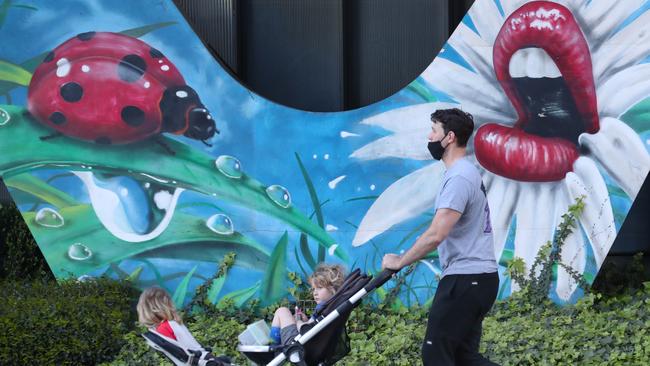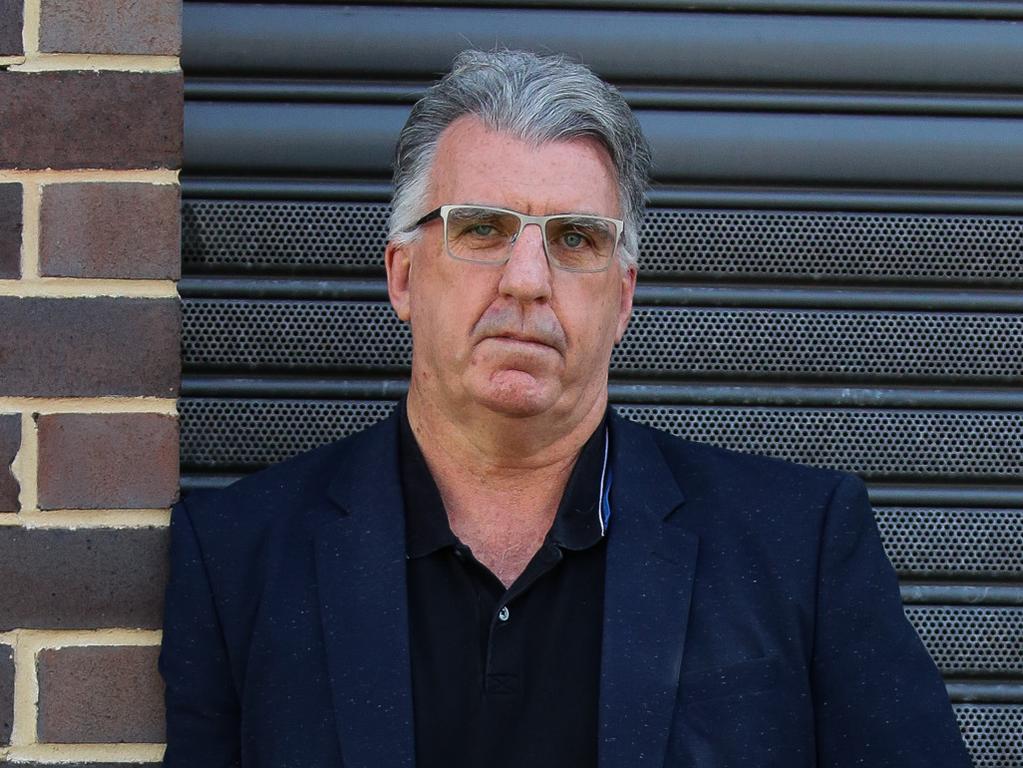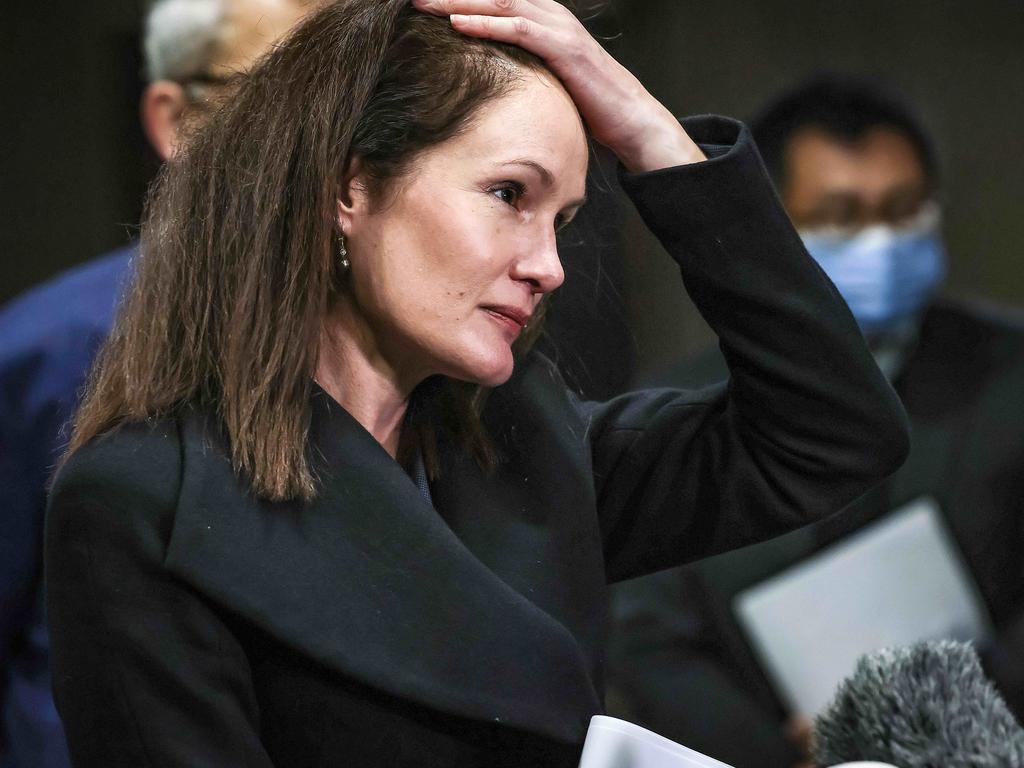
Consider all the things millions of our citizens can’t do. We can’t leave home without a valid reason. We can’t visit our loved ones. We can’t have more than a socially distanced handful of people to weddings and funerals. We can’t go to a place of worship. We can’t meet outside with more than one other person and then it’s masked up. The only shops we can go to are supermarkets or pharmacies.
For more than a year, no Australian has been able to leave the country without first getting special permission. And no one has been able to make any plans because they can be up-ended at a moment’s notice because of a virus outbreak.
A royal commission with all the powers to compel witnesses and documents would give us the best chance to learn the lessons from this pandemic – all the things we got right and those we didn’t – to better inform how we will tackle the next pandemic. Having seen the impact of this virus, you can’t tell me bio-defence won’t be a security strategy for sound nations and an offensive measure for rogue ones.
Given that Australia has been turned into a hermit kingdom, most of us have lived for months under virtual house arrest and the federal government alone has spent 20 per cent of gross domestic product paying us not to work and to keep our businesses closed – albeit to stay safe from a pandemic virus – surely there are obvious questions a serious country would want asked and answered. Such as: just how deadly was Covid and what were the relative costs of the disease and the measures against it? Was it necessary to lock down so often and so hard?
Were the right experts being listened to? Were proper democratic accountability mechanisms maintained? Did the national cabinet help or hinder our national unity? Why suspend parliamentary sittings when scrutiny was critical? Did domestic and international borders need to be shut so hard and for so long?
It’s worth remembering that Australia’s national pandemic plan never included advice to close state borders, shut workplaces and cancel mass gatherings in a moderate pandemic. It stated that “the rights of the individual” should be “upheld as much as possible” and stressed that “measures taken should be proportional to the threat”. This plan has been in existence for more than two decades under Labor and Liberal governments and was last updated in August 2019, but it doesn’t seem to have guided our response to Covid-19. Why? This is where a proper inquiry would find answers where media questions fail.
The complacent conclusion that we have handled the pandemic well because, on a per capita basis compared with the US or Britain, up to 50,000 Australians otherwise might have died depends on two assumptions. The first is that it was Covid that was the main cause of death for all those who died after a positive test; the second, that staying alive is far more important than actually living.
Given that roughly 90 per cent of Covid deaths, here and overseas, involved other serious underlying health conditions, how much life really has been saved? Conversely, how much of life has been lost due to the restrictions imposed to keep people alive, such as people denied the company of family in their last days and young people deprived of school and university for most of two years?
Then there are all the other illnesses untreated, such as heart disease and cancers, because of Covid anxiety, and the mental illness and suicide generated by Covid restrictions. These are all questions that should be pondered as dispassionately as possible and debated as widely as possible if we are to be in a better position to handle the next pandemic, about which nothing is certain save that there will be one.
The pandemic has separated Australians into two distinct groups: a small minority who’ve had the time of their lives dealing with a crisis that has empowered them as never before; and the vast majority who have endured restraints on their freedom that no one would have imagined possible just two years ago. The last thing the first group wants is to be held to account; the first thing the second group needs is a proper analysis of why their lives were turned upside down.
The vested interests that would prefer no inquiry lest their own conduct be found wanting include: the health bureaucrats who routinely denied requests to access treatment interstate and to allow citizens to cross borders for work or compassionate reasons; the chief health officers who put protecting lives ahead of protecting livelihoods and who never published their advice; the police commissioners who told their officers to fine first and ask questions later; the ministers who failed to question their bureaucrats or to take responsibility for their own decisions; the premiers who closed state borders, imposed mask mandates outside and curfews for which there was no health justification because they wanted to appease a crisis-mongering media or impress a panicked public; and all the leaders whose actions have made Australia a collection of squabbling states rather than a country that’s capable of keeping calm and carrying on in the face of a crisis.
On the other hand, the millions of Australians who deserve a full inquiry include: the relatives of everyone who has died in a nursing home with inadequate infection controls; everyone who has lost income or had their job made difficult or their business closed; all the taxpayers who’ll be saddled with extra debt for at least a generation; and all the Australians trapped at home and abroad.
For several years, Australian special forces soldiers who were sent repeatedly into Afghanistan and largely left to their own devices have had their conduct scrutinised to the point of being branded war criminals even though they undoubtedly were risking their lives for our country. Their senior officers, inexplicably, were all exonerated. And yes, if mistakes were made, we need to learn from them. Even so, here we are examining those who were prepared to risk their lives to save our freedoms; yet we are not prepared to have an inquiry into those who risked our freedoms to save our lives. Why is it that our soldiers can get away with nothing but our politicians and bureaucrats, at least in this instance, can get away with everything?
Peta Credlin is host of Credlin on Sky News, 6pm weeknights.








If the federal government can have royal commissions into aged care, disability care, bushfires, veteran suicides and youth detention in the Northern Territory, you have to ask why it has not yet foreshadowed a full national inquiry into the biggest crisis in two generations, one that has resulted in more than 1000 deaths, the biggest expansion of government in peacetime and unprecedented restrictions on our freedom.